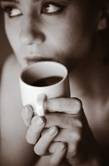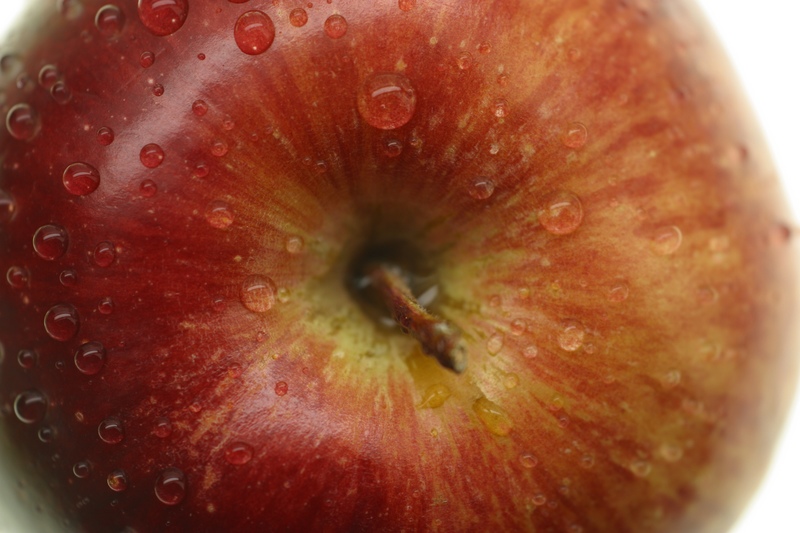
WEDNESDAY, June 2 (HealthDay News) — If you shudder at the thought of having to start the day without a cup of coffee, new research hints at why you may feel this way.
Regular coffee drinkers seem to need caffeine to return to their normal state of alertness and to avoid the side effects of caffeine withdrawal such as headaches. That runs counter to popular belief that drinking caffeinated beverages offers some added boost in alertness, the researchers said.
“Although caffeine consumers feel alerted by caffeine, the effect is actually only bringing you back from caffeine withdrawal-induced, low-level alertness,” said study author Peter Rogers, a professor in the department of experimental psychology at the University of Bristol in England. “You are not gaining anything over and above a non-consumer of caffeine.”
The study is published online June 2 in the journal Neuropsychopharmacology.
Caffeine, sometimes called the most commonly used drug in the world, acts on the central nervous system’s receptors for the neurotransmitter adenosine, according to background information in the study. Adenosine is involved in regulating blood pressure, as well as sleepiness and wakefulness, alertness and anxiety responses, Rogers said.
In the study, researchers asked 379 participants to abstain from drinking caffeinated beverages for 16 hours. They then gave half of the participants 100 milligrams of caffeine (the equivalent of one to two cups of coffee), and another 150 milligrams of caffeine an hour and a half later. The other half were given a placebo.
Participants were also asked about their normal consumption of caffeinated beverages. Light caffeine consumers were those who drank less than 40 milligrams a day, or less than the amount of caffeine found in one cup of coffee. A cup of instant coffee has about 54 milligrams of caffeine, according to the study, though the precise amounts are dependent on brand and brewing method, among other factors, Rogers said.
While both light caffeine drinkers and heavier caffeine drinkers reported feeling more alert after being given caffeine, there were marked differences in their responses to the placebo.
Those who normally drank few caffeinated beverages didn’t notice much of a difference in their level of alertness when given a placebo versus caffeine. Heavier caffeine drinkers given the placebo, however, reported a sharp drop-off in feelings of alertness.
In addition, heavier caffeine consumers given placebo were also much more likely to report having a headache.
“What this study does is provide very strong evidence for the idea that we don’t gain a benefit in alertness from consuming caffeine,” Rogers said. “Although we feel alert, that’s just caffeine bringing us back to our normal state of alertness.”
Furthermore, abstaining from caffeine when you’re used to having it can cause a “caffeine hangover,” Rogers said.
“The nice thing about a caffeine hangover is you can get rid of it quickly by drinking coffee,” Rogers noted.
Researchers also looked at caffeine-induced anxiety, a common side effect that’s more pronounced in people with a specific variant of the ADORA2A gene, previous research has shown.
In this study, about 20 percent of participants had the ADORA2A variant, Rogers said; other research has put the number of people with the variant as high as one-third.
Researchers found people with the anxiety-producing variant were no less likely to consume coffee than those without the variant and in fact, tended to drink a bit more coffee suggesting that the “anxiety buzz” caused by caffeine isn’t necessarily unpleasant, Rogers said.
“They don’t seem to particularly mind it, in fact, they might like that anxiety buzz,” Rogers said.
Participants who typically consumed caffeinated beverages also seemed to develop a tolerance to its anxiety-producing effects. Among regular caffeine drinkers, there was little difference in feelings of anxiety whether they’d been given a placebo or the real thing, while light caffeine drinkers reported significantly more anxiety after being given caffeine.
Dr. Peter Martin, a professor of psychiatry and pharmacology at Vanderbilt University, said the study is an interesting look at the biological effects of caffeine. However, not everyone who drinks lots of caffeinated beverages experiences withdrawal such as headaches when they cut back or quit.
And compared to other “drugs,” the effects of caffeine are mild, and coffee and tea in particular may have other health benefits.
“That is the difference between statistical significance and clinical relevance,” Martin said. “No one is going to change what they do, and there’s no reason to change. There is a lot of data to suggest caffeine improves motor performance and memory performance.”
A study released online May 12 in The Cochrane Library found caffeine helped prevent errors among shift workers and those who work at night.
More information
The U.S. National Library of Medicine has more on caffeine.

